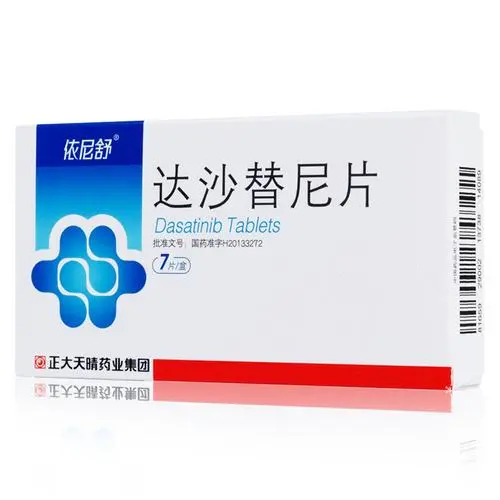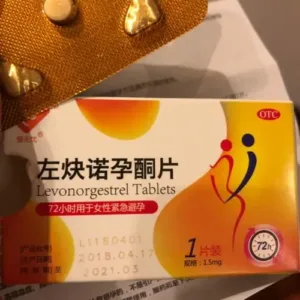Dasatinib Tablets
Efficacy: Dasatinib is used to treat adult patients with Philadelphia chromosome-positive (Ph+) chronic myeloid leukemia (CML) in chronic phase, accelerated phase and blast phase (myeloid and lymphoid transformation) who are resistant or intolerant to imatinib mesylate.
Dosage and Administration: This drug should be used by physicians with experience in diagnosing and treating leukemia. Dosage For patients with Philadelphia chromosome-positive (Ph+) chronic myeloid leukemia (CML) in chronic phase, the recommended starting dose is 100 mg of dasatinib, once a day, orally. The time of administration should be consistent, either in the morning or in the evening. For patients with Philadelphia chromosome-positive (Ph+) chronic myeloid leukemia (CML) in accelerated phase and blast phase (myeloid and lymphoid transformation), the recommended starting dose is 70 mg, twice a day, orally in the morning and evening. Tablets must not be crushed or cut and must be swallowed whole. This product can be taken with food or on an empty stomach. Duration of treatment In clinical trials, treatment with this product continued until disease progression or the patient no longer tolerated the treatment. The effect of stopping treatment after achieving complete cytogenetic remission (CCyR) has not been studied. The physician will recommend dose increases or decreases based on the patient’s response and tolerability. Dose escalation In clinical trials of adult patients with Philadelphia chromosome-positive (Ph+) chronic myeloid leukemia (CML), if patients fail to achieve hematologic or cytogenetic remission at the recommended starting dose, the dose can be increased to 140 mg once daily for patients with chronic phase CML and 90 mg twice daily for patients with progressive phase (accelerated phase and blast phase) CML.
Adverse reactions:
In an open, single-arm, multicenter study conducted in China, a total of 121 patients were treated with dasatinib (starting dose of 100 mg QD for chronic phase CML and 70 mg BID for accelerated phase CML/blast phase CML/Ph+ALL) with a follow-up period of 18 months. Most patients treated with this product experienced adverse reactions, most of which were mild to moderate. The most common non-hematologic adverse reactions reported by Chinese patients at different stages of the disease included pleural effusion, diarrhea, headache, upper respiratory tract infection, lung infection, nasopharyngitis, fatigue, and fever. Drug-related bleeding events ranging from epistaxis to grade 3 or 4 gastrointestinal bleeding and CNS bleeding were reported.
Drug contraindications:
Allergic reaction to this product is contraindicated. Use with caution in patients with liver damage
Share:
Products
Our offers
Health Classification
Let us work together to protect precious health



























